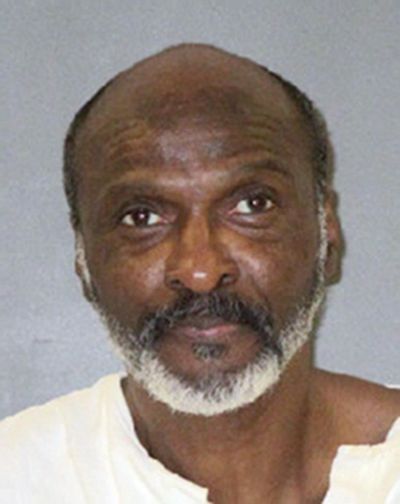U.S. Supreme Court refuses to stop Texas execution

HUNTSVILLE, Texas – The U.S. Supreme Court on Tuesday night rejected two appeals from a Texas death row inmate, clearing the way for his execution for the 1999 slaying of his ex-girlfriend while he already was on parole for killing his estranged wife.
William Rayford, 64, would be the nation’s second inmate executed this year, both in Texas. He was convicted in the beating, stabbing and strangling death of 44-year-old Carol Lynn Thomas Hall.
Hall’s body was found about 300 feet inside a drainage pipe behind her home in the Oak Cliff area of Dallas. Her 11-year-old son also was stabbed in the attack but survived, and he testified against Rayford.
Rayford’s lawyers lost two appeals before the high court to halt the execution, which was scheduled for around 6 p.m. CST but was delayed until appeals were resolved.
They argued that his death sentence was tainted because his trail attorney in 2000 improperly introduced the subject of race as a factor in prison violence while questioning a prison expert during the punishment phase. Nadia Wood, a Dallas-based federal public defender, told the high court that in bringing it up, the trial lawyer implied “that people like Mr. Rayford – a black man – are the cause of the violence.”
An assistant Texas attorney general, Jefferson Clendenin, disputed the argument, telling the justices that the witness never testified as an expert in rates of violence because he wasn’t qualified to do so. Clendenin said none of the witness’ trial testimony “even implied that African-Americans are more likely than others to be violent or that Rayford himself was a future danger.”
In a second appeal to the justices late Tuesday afternoon after it was denied by the 5th U.S. Circuit Court of Appeals, attorneys argued a federal district judge improperly denied money for his lawyers to hire a forensics expert to examine whether Hall’s slaying may not have qualified for a capital murder charge. They also said Rayford suffered brain damage from lead poisoning because he grew up near a toxic site and carried lead residue from old gunshot wounds.
Clendenin said evidence “more than established” Rayford kidnapped Hall while trying to kill her, supporting the capital murder charge. He said arguments about lead poisoning were based on a “vague, general and nebulous conclusion” by a defense expert.
Hall had known Rayford since they grew up in a Dallas housing project. Investigators said she had broken up with Rayford about two months before he entered her home on Nov. 16, 1999, using a key she didn’t know he had. They argued and it turned violent.
Hall’s son, Benjamin, testified at Rayford’s trial that he suffered a punctured lung from a stab wound. He said he was hit on the head when he tried to protect his mother. He said he watched her run from the home with Rayford pursuing her. He said he saw Rayford carry his mother toward the drainage pipe where her body eventually was found.
Police responding to a call about the attack arrested Rayford at the scene. Hall’s blood was on his face and clothing. He told an officer Hall could be found “in the hole … up in the sewer, in the water.”
Rayford also was convicted of murder in 1986 for fatally stabbing his estranged wife, Gail Rayford, in front of their four children. She had obtained a court order four days earlier to keep him away.
He was sentenced to 23 years in prison for her slaying but was paroled after eight years under a former Texas law that allowed some prisoners to be released as the state struggled with prison crowding. He had been on parole for five years when Hall was killed.
Relatives said Hall was aware of his previous murder conviction when they became a couple and believed it was her Christian duty to give people second chances.
Another Texas prisoner is scheduled for execution this week. John David Battaglia, 62, of Dallas, was convicted in the May 2001 shooting deaths of his daughters, who were ages 6 and 9. His lethal injection is set for Thursday.